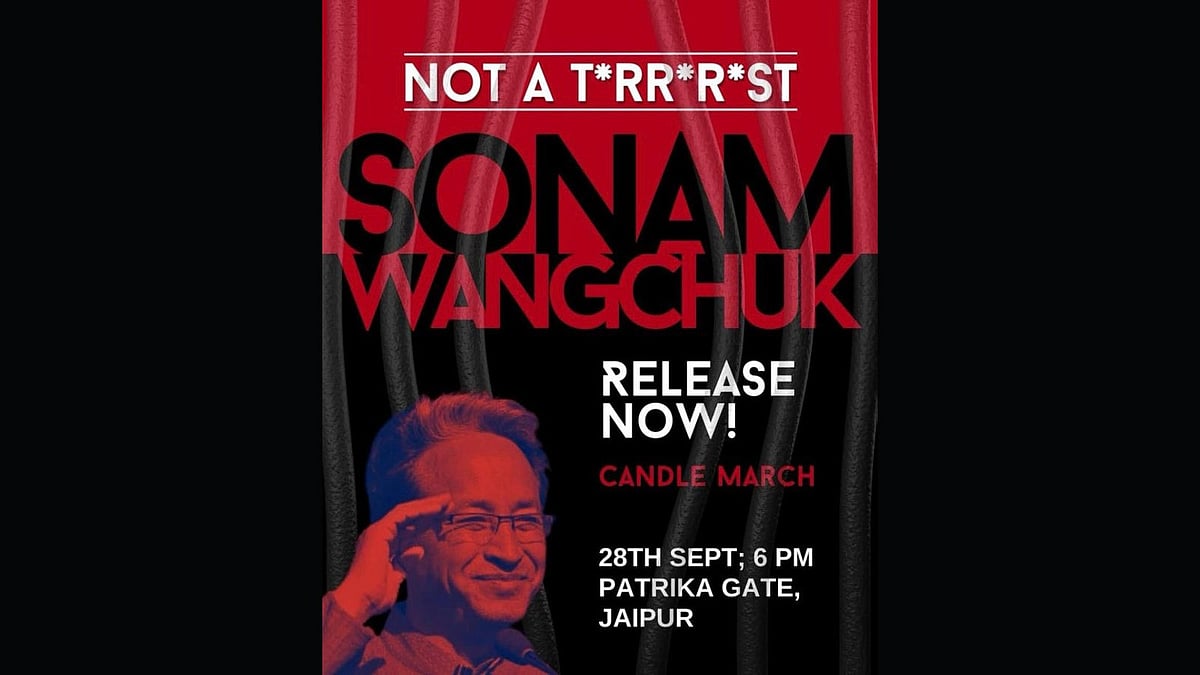Nation
Ladakh talks: Kargil Democratic Alliance also boycotts, stands with Leh Apex Body
While the MHA has made a point of ‘always’ being open to talks, the representatives of the people have let the central govt know talks can’t be held at “gunpoint”

The Kargil Democratic Alliance (KDA) announced on 30 September, Tuesday, that it will refuse to join talks with the central government until climate activist Sonam Wangchuk and other detainees from Leh are released and a judicial inquiry is ordered into last week's police firing.
KDA co-chairman Asgar Ali Karbalai has demanded “a judicial probe into the firing by the security forces during a shutdown in Leh on September 24” and called for an immediate end to arrests linked to the protests.
Published: undefined
The KDA, which brings together leaders from Kargil — one of Ladakh’s two districts — and is jointly with the Leh Apex Body (LAB) negotiating with the central government the demands for Ladakh’s statehood and Sixth Schedule safeguards, has emphasised its solidarity with LAB’s declaration of yesterday, 29 September.
“We are constantly in touch with the Leh Apex Body... We will not participate in the talks with the Centre till Sonam Wangchuk is released, arrests are stopped, those arrested are released and a judicial probe is ordered,” Karbalai declared.
Published: undefined
The objection begins with the Narandra Modi government’s response to the violent protests that rocked the union territory on 24 September: As thousands in Leh responded to continued delays in delivering autonomy and constitutional protections, four people were killed in clashes with security forces and over 50 detained under charges including rioting.
Among those arrested was Sonam Wangchuk, a noted environmentalist and statehood campaigner, held under the National Security Act and transferred to a Jodhpur jail.
Published: undefined
The KDA leaders have rejected accusations by Ladakh’s UT administration and the ministry of home affairs, deflecting terms like “anti-national”, which the LAB also did yesterday.
Karbalai insisted, “The KDA dismisses all allegations of the UT administration and MHA, and we want to tell them that Sonam Wangchuk, who is a hero of the country, should be immediately released.”
He condemned the language of the authorities: “We want to tell the government of India we don't need a certificate from anyone. We have sacrificed our lives for the country. Stop portraying Ladakhis as anti-national.”
Published: undefined
Ladakh MP Mohmad Haneefa echoed the sentiment, warning that locals are offended and angered by such denunciatory remarks.
His comments too echo the LAB’s announcement of Monday, when the Apex Body also suspended negotiations until “a judicial inquiry into the police firing is constituted and all activists, including Wangchuk, are released unconditionally”.
Published: undefined
Haneefa doesn’t stand alone. Several local leaders and diverse activists and scientists as well stand with him — and with Sonam Wangchuk and the 50-odd other detainees.
Published: undefined
The broad opposition rejects the Centre’s late September invitation for renewed dialogue, scheduled for 6 October.
Both LAB and KDA now insist that talks should only resume in a “conducive atmosphere” with justice for the victims — some of whom were Kargil veterans, critics point out, and are now being vilified — and with the release of prisoners and removal of stigmatising allegations.
As Karbalai for the KDA and the Apex Body leaders now underscore, the path to peaceful resolution depends on restoring trust and addressing long-standing political and constitutional demands of Ladakh’s people.
On this, both Muslim-majority Kargil and Buddhist-heavy Leh stand firmly together — to the central government’s discomfiture.
Published: undefined
Follow us on: Facebook, Twitter, Google News, Instagram
Join our official telegram channel (@nationalherald) and stay updated with the latest headlines
Published: undefined